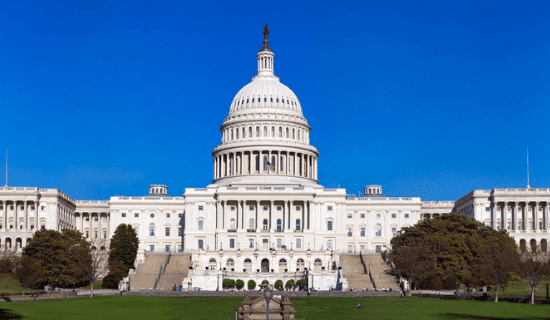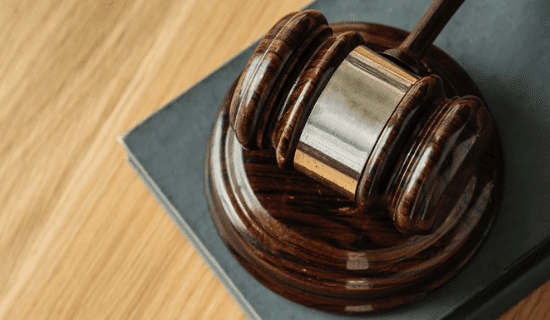Types of Whistleblowing: Do I Have a Case?
If there is one simple truth about corruption, it’s that it is not a new phenomenon. As long as there have been humans, there have been people and organizations operating in dishonest ways for their own personal gain, whether it be financial or otherwise. Throughout time, countless innocent people have fallen victim to fraud and other unethical acts, whether in the workplace, in political settings, or in other arenas. Fortunately, whistleblowing—reporting a known fraud or unethical act—is one of the best ways to combat corruption. If you have knowledge of corruption, an unethical policy, or another wrongdoing that has caused someone harm, you may wonder what types of whistleblowing cases exist, what legal precedents have been set, and what protections whistleblowers have under state or federal law.
The issue of whistleblower protections is an important one, as many whistleblowers have taken great personal and professional risks in standing up for justice. Fortunately, the way that society views and treats whistleblowers has shifted over time toward a more positive stance. There are more whistleblower cases now than ever before, and more people in favor of exposing fraud and corruption. Whistleblowers assist in moving society toward fairer treatment for workers, consumers, medical patients, and other groups who have been victimized by unfair policies, illegal acts, and other wrongdoings in the past.
 The False Claims Act (FCA)
The False Claims Act (FCA)
Considered the country’s first and most effective antifraud law, the False Claims Act (31 U.S.C Sections 3729 through 3733) was signed in 1862 and then revised to strengthen its provisions. This piece of legislation was first enacted after the Civil War, when it was found that suppliers provided substandard equipment and services to troops. Under the law, any individual or non-governmental organization can be rewarded for filing a lawsuit on behalf of the U.S. government and disclosing confidential information about fraud that resulted in financial losses for the federal government.
Once a claim is made, the U.S. government can join the action. The qui tam, or whistleblower, provision states that in the case of a successful prosecution, whistleblowers can be awarded anywhere between 15% and 30% of the total collected proceeds. In some cases, the award amount can be quite significant.
The law and its requirements are quite complex, particularly now that a growing number of states have also enacted similar statutes to allow whistleblowers to be awarded a “finder’s fee” for reporting fraud. You don’t have to be a U.S. citizen to serve as a whistleblower, and provisions can apply to conduct which occurs outside of the country, as long as there is federal contracting, procurement or spending. In addition, there is a statute of limitations to file an action, which can be up to six years after a violation or up to three years after the government was made aware of Act violations. The FCA protects against a variety of types of offenses, including:
- overcharging the government
- submitting false information on a government loan application
- seeking payment for goods and services outside of contractual or regulatory requirements
- seeking payment for defective goods or services that were lesser quality than agreed upon in a contract
- attempting to pay less to the government than the contractually agreed-upon amount
- fraudulently seeking out a government contract
- submitting a false claim to argue that the defendant complied with an existing contract, regulation or law
The biggest changes to the FCA were made in 1986 to encourage whistleblowers to come forward and to significantly increase the potential amount of damages awarded. According to the National Whistleblower Center, since those changes were enacted, 72% of funding recovered in procurement or contracting fraud cases have been thanks to whistleblowers coming forward. Of the $42.5B brought into the U.S Treasury from 1986 until FY 2018, $6.4B was rewarded to whistleblowers. In FY 2019 alone, an average of more than 12 qui tam lawsuits were filed each week. Whistleblowers have become the primary source of information about these fraud cases and now play a vital role in preventing government fraud.
 Whistleblower Examples: Individual Whistleblowers and Types of Whistleblowing Cases
Whistleblower Examples: Individual Whistleblowers and Types of Whistleblowing Cases
There have been several famous, high-profile whistleblower examples over the past several decades, such as Mark Felt, also known as Deep Throat, who played a pivotal role in helping reporters Bob Woodward and Carl Bernstein bring the Watergate scandal to light. There was also Frank Serpico, a police officer who fought against corruption within the New York City police department. Houston-based company Enron was also swept up in a high-profile whistleblower case when its vice president exposed the corporation’s illegal accounting practices. More recently, U.S. soldier Chelsea Manning became a household name when she disclosed hundreds of thousands of confidential or highly sensitive military and diplomatic documents to WikiLeaks in the name of increasing government transparency, especially regarding U.S. involvement in the Iraq War.
Not every whistleblower example is famous or high-profile, however. Many examples of whistleblowing might never be known outside the people, companies, and courtrooms involved in each case. Some lesser-known examples of this type of case have involved whistleblowers who exposed defense contractors that were knowingly providing faulty equipment to the military for profit, or who exposed hospitals for fraudulent billing practices, such as billing insurance companies for patients that didn’t exist or tests that weren’t actually rendered.
There are many different types of whistleblower cases, but the main kinds of fraud that individuals blow the whistle to expose are:
- Healthcare fraud — this includes fraud on the part of hospitals, pharmaceutical companies, medical device companies, and other parties. The number of personal injury examples stemming from these types of cases is quite large, since the impacts can often be catastrophic on victims and their families.
- Tax fraud — companies, corporations, or individuals engaged in illegal acts like tax evasion, false reporting of income, and more.
- Securities fraud — also known as investment fraud, this involves inducing investors to buy or sell stock on false pretenses.
- Contractor fraud — when construction or defense companies overbid on projects, falsify invoices, sell faulty equipment that results in common construction site injuries, or provide illegal kickbacks in order to maximize profits.
There are other types of whistleblower cases involving publicly and privately held businesses in which employees discover and expose financial mismanagement, discrimination, health and safety code violations, or other violations on the part of their employers. As long as the employee acted with good intentions in exposing the wrongdoing, they are legally protected from any type of retaliation on the part of their employer.
 Whistle Blowing in the Workplace
Whistle Blowing in the Workplace
Whistle blowing in the workplace is a type of internal whistleblowing—when someone who works for a company, organization, or corporation exposes wrongdoing. In most cases, this whistleblower is a worker or employee, but sometimes administrators and other higher-ups stand up for justice by sounding the alarm on illegal or unethical practices.
Whistleblowing in the workplace is often a risky prospect—people who expose highly sensitive organizational secrets can be the target of retribution from their employers. The Whistleblower Act helps to protect federal employees who blow the whistle on their governmental agencies, but what protections exist for employees of private companies who wish to expose their employers’ wrongdoing?
In 1970, the Occupational Safety and Health Administration administered the OSH Act to ensure that employers at privately held companies provide safe and healthful conditions for workers and other employees. Over thirty years later, in 2002, the Corporate and Criminal Fraud Accountability Act was enacted, partly in response to the Enron scandal, in order to further protect employees from unfair or illegal practices in the workplace.
A section of this newer legislation protects whistleblowing employees of publicly traded companies who might risk retaliation from their employers. The act also requires publicly traded companies to adopt comprehensive codes of ethics as well to address employees’ allegations of fraud internally. Certain employees of private companies are also protected by this same legislation. Thanks to this piece of legislation, it is illegal for employers to fire, demote, harass, discriminate against, or otherwise punish employees for blowing the whistle on their employers’ wrongdoings.
 Whistleblower Retaliation: How to Protect Your Rights
Whistleblower Retaliation: How to Protect Your Rights
Despite the many laws in place enacted to protect whistleblowers from retaliatory consequences, anyone who exposes fraud or other wrongdoing runs the risk of whistleblower retaliation. If you have called out wrongdoing or misconduct and have been the victim of whistleblower retaliation as a result, you do have rights. Whether you are considering blowing the whistle or you have already done so and then suffered retaliation, such as being fired, demoted, or harassed, your next step should be to secure experienced legal representation to assist you in securing justice.
Slack Davis Sanger Helps Protect Whistleblowers
The attorneys at Slack Davis Sanger are experts in all types of anti-corruption claims, and we have experience with representing clients against corporations or federal agencies that have engaged in misconduct. There can be a sense of David versus Goliath in many whistleblower claims cases, since whistleblowing is often done by a relatively powerless individual against a sizeable and wealthy company or other entity with extensive financial and legal resources at its disposal. This is yet another reason why it is of utmost importance to hire the best legal representation available, such as the qualified legal team at Slack Davis Sanger. We will utilize our deep knowledge of the law, including legal precedents established in prior whistleblowing cases, to fight tirelessly for your rights and secure the damages you deserve.

The firm handles cases involving catastrophic personal injuries and deaths. Our work spans three decades of handling airplane and helicopter crashes, truck and car accidents, oilfield and construction accidents, and other devastating accidents. We try lawsuits throughout the country in both federal and state courts and have recovered hundreds of millions of dollars for our clients. To date, we have handled or tried cases in 47 states, read more about our attorneys and firm.
